How to Practice Korean Speaking Before Arriving in Korea
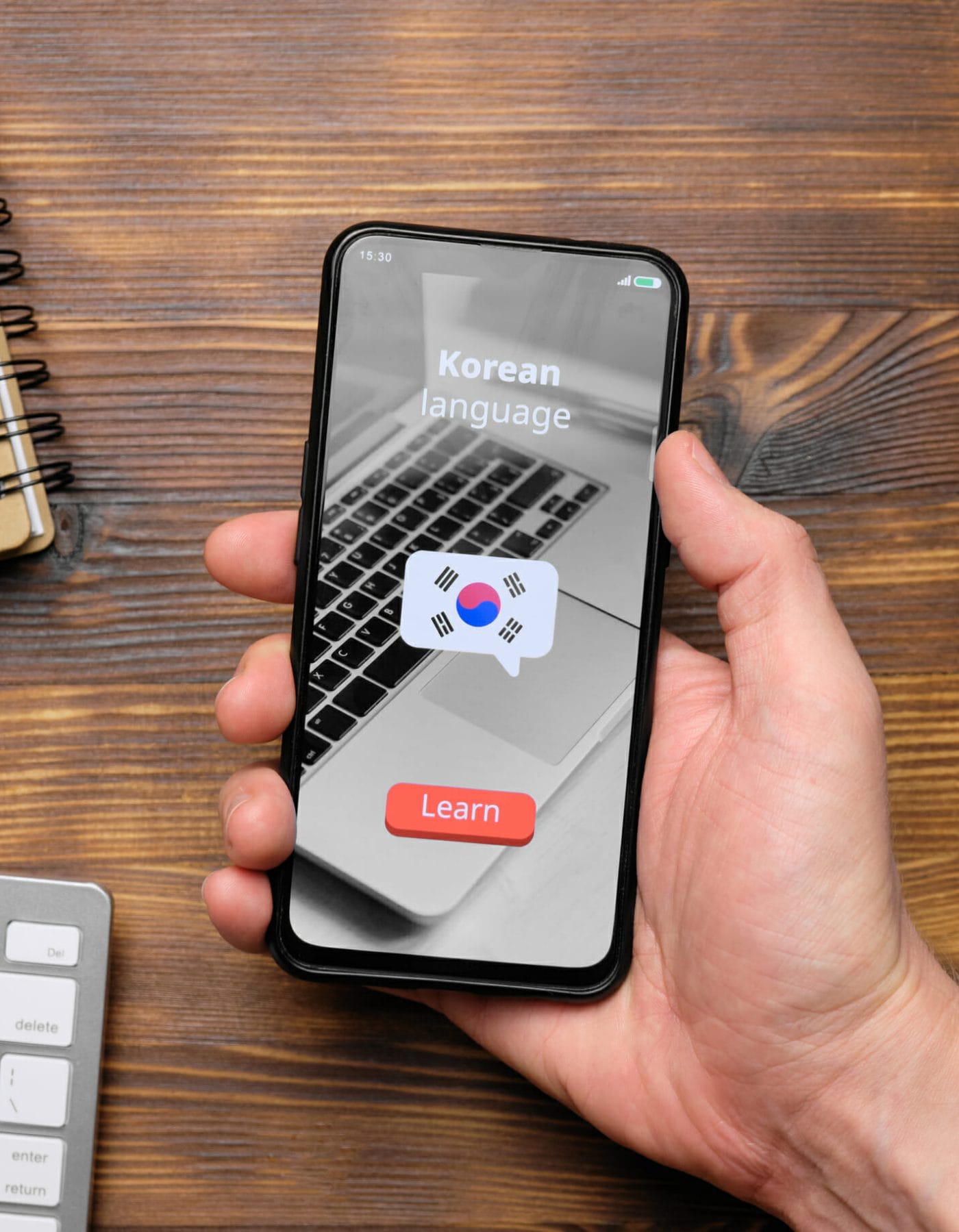
Five years ago, I stepped off a plane and into the Gimhae International Airport. I planned to spend the next year and a half in Korea, and having spent nine weeks in a Korean language program, I felt confident in my Korean skills. In the language program, I learned how to read and write in Korean. I also learned basic Korean grammar and short phrases that I practised with fellow Korean learners.
After spending a total of 10 minutes in Korea, I realized that the confidence I felt in my Korean language abilities was greatly misguided. The people I interacted with had no idea what I was saying, and I likewise had no idea what they were saying. I quickly learned that the time I spent reading, writing, and learning Korean grammar, while not useless, was not sufficient to hold a conversation in Korean. What I needed was Korean speaking practice.
Over the next year and a half, I spent many hours learning grammar and memorizing vocabulary. While this was important in advancing my Korean language abilities, I learned the fastest when conversing in Korean with Koreans.
I quickly learned that speaking practice was the most valuable mode of study. It was also the most important Korean language skill to have when navigating Korea. When returning from Korea, I no longer had access to as many Korean speakers and once again found it hard to progress in my language skills.
That is when I turned to the internet to find Korean practice resources. While many resources are available besides those listed below, I have seen the most success with these. If you have planned a trip to Korea and want to avoid the same mistakes I made or are learning Korean and want to build on your skills, check out these ten resources.
This article contains affiliate links. Affiliate links provide me with a percentage of purchases made from links on this page. This comes at no extra cost to you – for more information, please refer to my affiliate disclaimer.
8 Ways to Improve Your Korean Speaking Skills
1. Hilokal
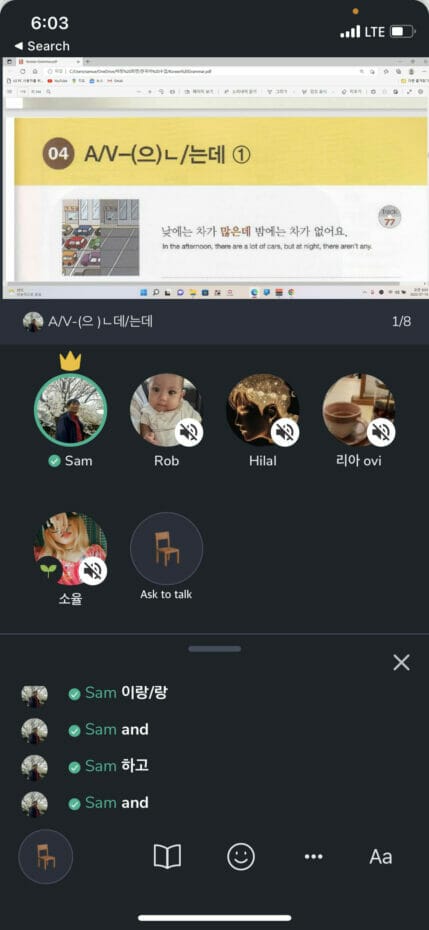
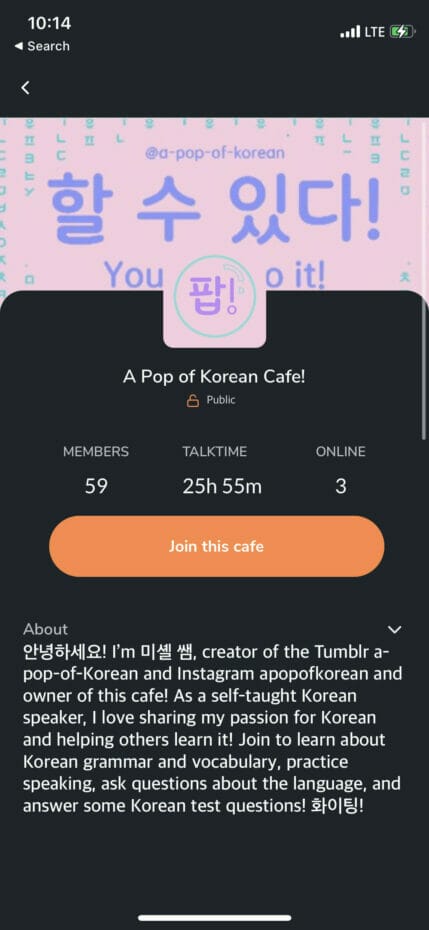
Depending on where you live, it can be hard to find fellow Korean speakers. Hilokal solves this problem by connecting you with Korean speakers no matter where you are located in the world. Hilokal is 100% focused on speaking, so it is a great website and mobile app to practice Korean conversations before you even set foot in Korea.
Every day there are thousands of chat rooms about a variety of topics. The chat rooms are organized by language and skill level. You can either choose to join one of these chat rooms and talk about a determined topic, or you can create your own chat room. Whatever your interest is, Hilokal probably has a chatroom for it, and if not, you can make one for other people to join.
Chat Rooms are always going on, so if you have work or school, you can study around your schedule. There are also free chat rooms hosted by professional teachers, students, and native Koreans. While speaking is the website’s focus, Hilokal also has thousands of free Korean lessons.
I recommend this website to anyone looking to improve their Korean speaking skills in a fun way. No matter what level you are at or your goals, Hilokal can help you improve your Korean and be ready for when you step off that plane into Korea.
2. Bumble
Anyone familiar with the online dating world might wonder, what does Bumble have to do with Korean? Well, what makes bumble unique compared to other dating apps is that there are two sides to Bumble, Bumble dating and Bumble BFF.
Bumble also can show you people in the area who speak the same languages as you. So if you add Korean to your bio as a language you speak, then Bumble will show you all the Korean speakers in your area. This is an excellent way to connect and make friends with people who speak Korean.
Most of the people you will find will be international students or people who just moved to the area and are looking for friends. Not only will it improve your Korean speaking skills, but you will also have friends to learn Korean culture from.
3. Meetup
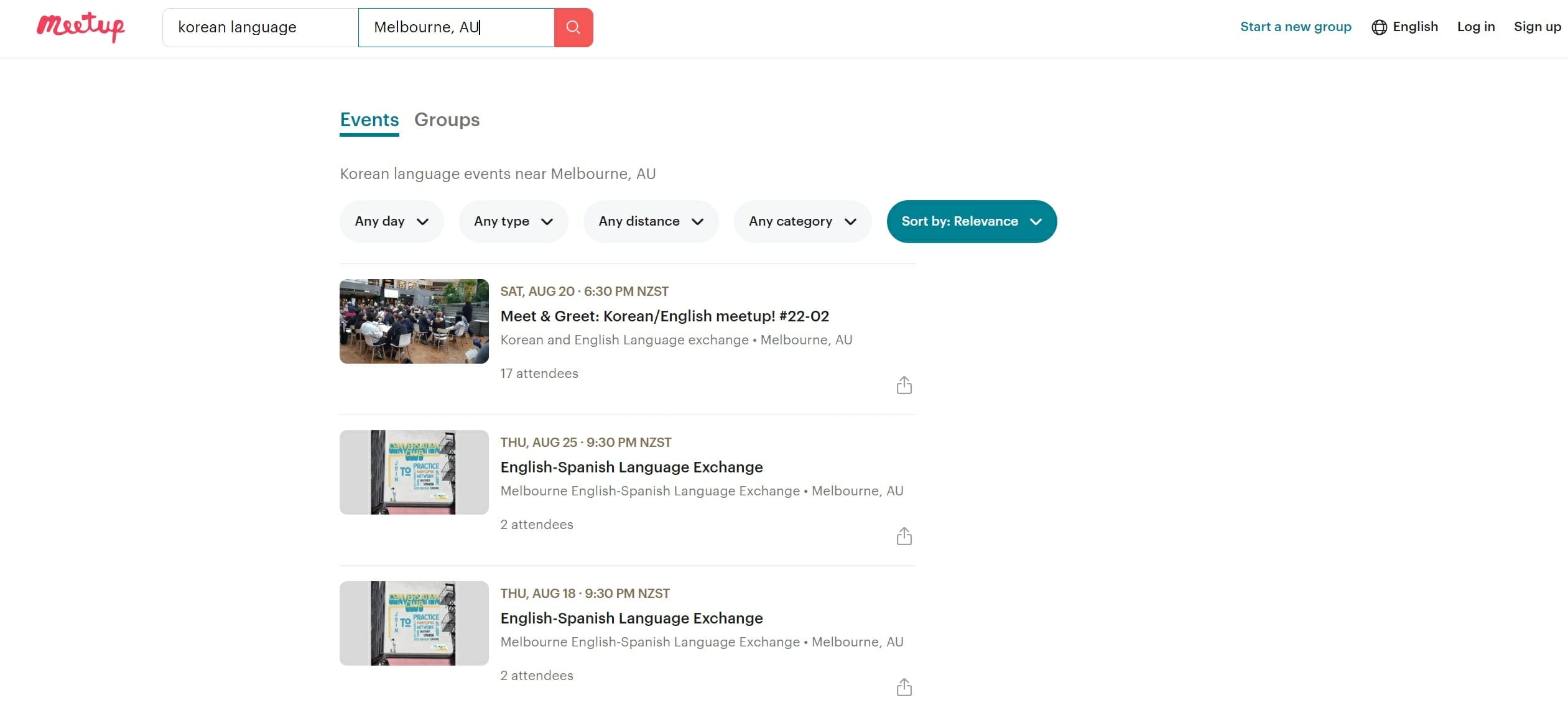
Meetup is an online platform that allows people with similar interests to plan events and meet up online or in person. While this website is not geared towards languages, many people use it to study with fellow language learners. Check it out and see what events you can join or plan and host your own event.
There are also language exchange events that occur pretty often through this site. This is again a great opportunity to meet Korean friends and learn Korean culture while also helping them with their English. In major cities worldwide, you’re very likely to have at least one active Korean meetup. Though if you’re in a smaller city, you might be out of luck. Though, you can always pay the registration fee and start the meetup yourself! Who said learning to speak Korean would be easy? It takes initiative!
If you find a Korean meetup in your region, you can expect to pay a small entrance fee to join or at least pay for a drink at the host venue. Also, I suggest you message the event’s host to ensure the event is still going on. Otherwise, you may end up going to an event that has long been inactive.
4. Reddit
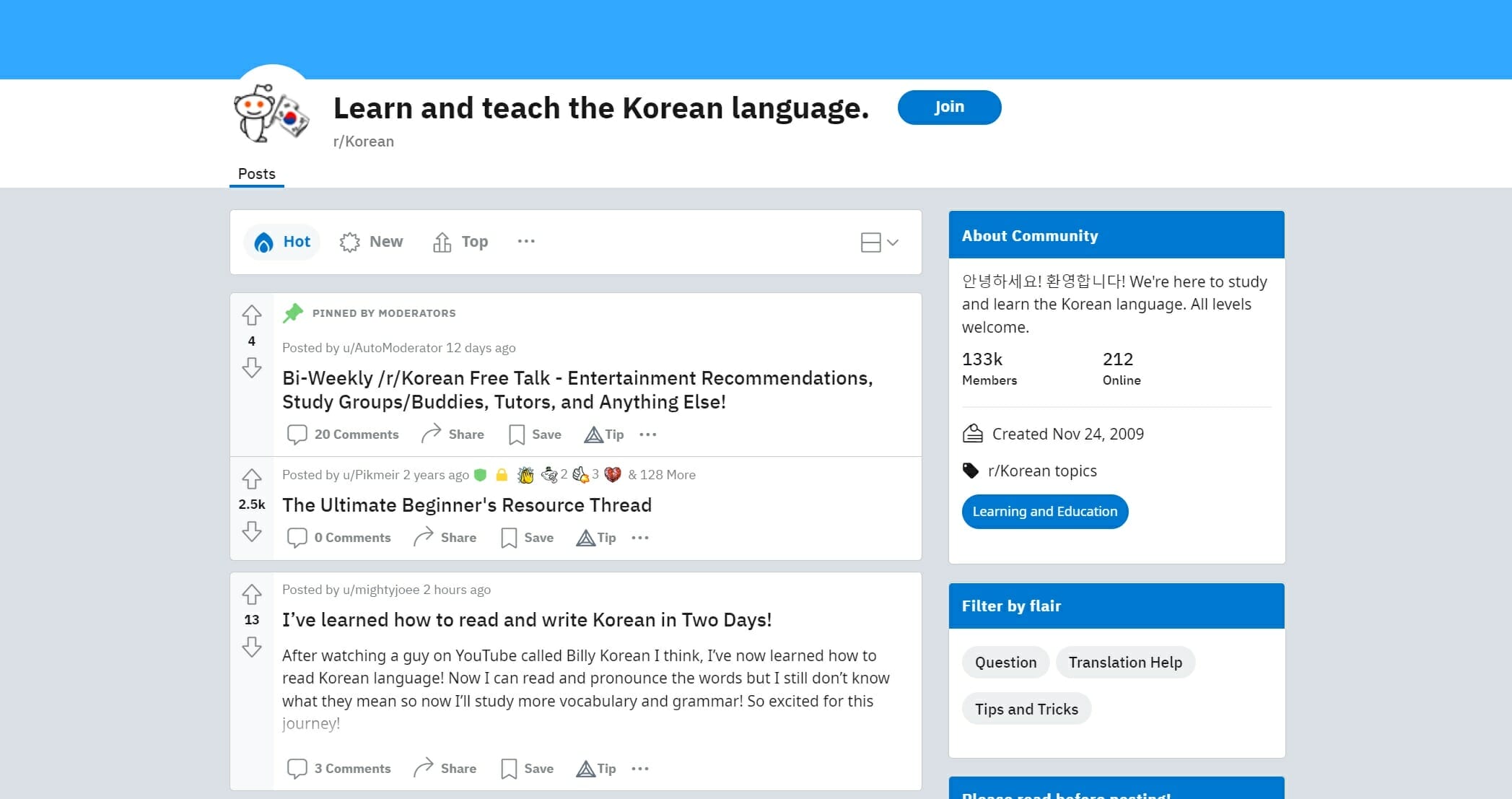
r/Korean on Reddit
Not only is Reddit a great place to post any Korean culture or language questions you might have, but also to find a language exchange partner or even just someone who wants to study Korean together. After posting, people interested in a language exchange will comment on your post or DM you to meet up.
As with everyone you agree to meet with on the internet, make sure you take the proper precautions before the meeting, like agreeing to meet in a public place or meeting as a group. If all goes well, you could find yourself a great study partner.
5. Kakaotalk
Many might recognize this app as the main messaging app in Korea. If you visit Korea, this app is essential for contacting people. Besides messaging, Kakaotalk also has open chat services. Many open chats focus on Korean language learners and language exchange. People will send questions into these chat rooms to have them answered or will start conversations to practice Korean.
Often people in these chatrooms will meet up for language exchange or to just hang out. Getting involved in these chat rooms could lead to some great connections and valuable learning experiences.
6. Language Reactor

Language reactor is a chrome extension that allows you to see subtitles on Netflix in English and Korean simultaneously. Language Reactor also allows you to pause the video and hover over unknown words with your mouse to see translations and definitions of words. Those words can then be saved and later practised with flashcards. You can also replay lines allowing you to listen closely to what is said and repeat the lines for yourself.
Speaking in Korean with accurate vocabulary and correct grammar is important when communicating with Koreans and will surely impress them, but taking on the intonation of the Korean language while speaking is a whole new level of competency.
Listening to native Koreans speak in dramas or movies and then repeating their pronunciation and intonation will elevate your skills to the next level and have you sounding like a native Korean.
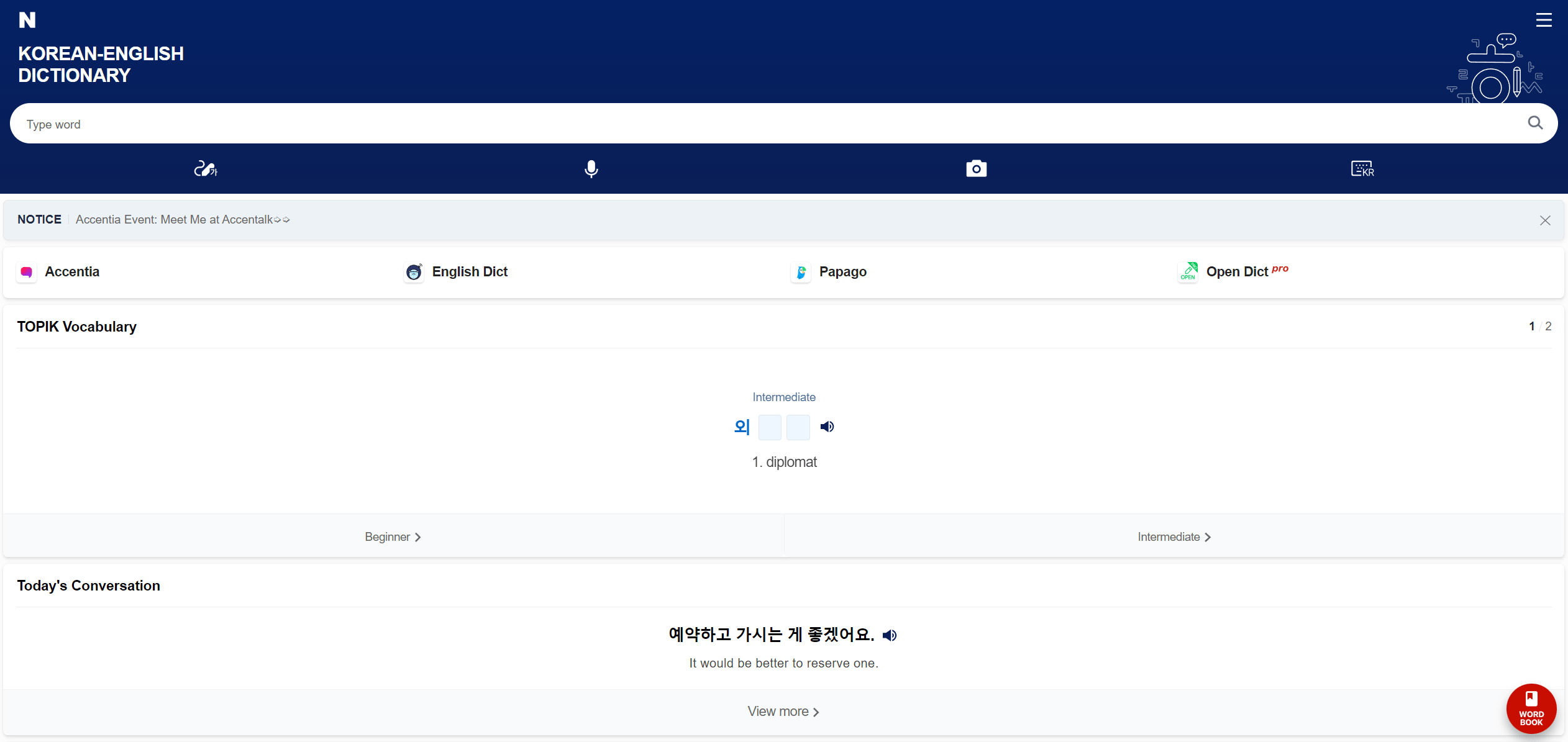
This resource does not involve a partner but is a great way to improve your Korean speaking skills. Naver Dictionary has the definition and translation of almost every Korean word. It also has the pronunciation of every word. Even if you can understand and speak Korean at a conversational level, it will be useless unless you have accurate and clear pronunciation.
With Naver Dictionary, you can search up any word, listen to the pronunciation, and then repeat it. I have often memorized a word after reading it in a book or seeing it on a flash card and then been embarrassed when I tried to use it. Because I had only read the word before, I had no idea how to pronounce it and thus pronounced it so bad that it was incomprehensible.
This site helps you avoid that. If you listen and repeat every word you learn, you will never mispronounce it. Naver Dictionary also has daily TOPIK Vocabulary, daily conversation, daily drama clip, word of the day, audio clips, idioms, and so much more that will help you talk more naturally in Korean.
8. Captionpop

Captionpop is a great little website that displays YouTube videos and their subtitles in an easy-to-study format. You can watch anything you can find on YouTube on CaptionPop, and then it gives you subtitle controls and save functions that make learning much more manageable.
The site focuses on Korean content, so you’ll see a lot of recommended channels and videos with great content for practising Korean. Now you may be thinking, I’m trying to learn how to speak Korean, not watch YouTube Videos. I recommend CaptionPop because it leads well into my next suggestion: Shadowing.
9. Shadowing

We can learn something from parrots!
Shadowing is invaluable for improving your speaking skills in a foreign language. Basically, while you listen to audio or even a language partner, you try to imitate what they’ve said in as close to real-time as you can manage.
As an example, the youtube video you’re watching may say, 안녕하세요 만나서 반가워요! (Hello, nice to meet you!). While shadowing, you try to repeat this sentence even before the speaker you’re imitating has finished their sentence. It’s important not to wait until they finish speaking before you start. Can you tell why it’s called shadowing?
This technique gives you a great ear for the pronunciation and intonation of the content you’re shadowing. It’s really difficult when you start out, but if you put in the hard hours, you’ll improve incredibly. It’s well worth the effort. If you try the final suggestion on this 10-item list, shadowing is only improved.
10. Record Yourself
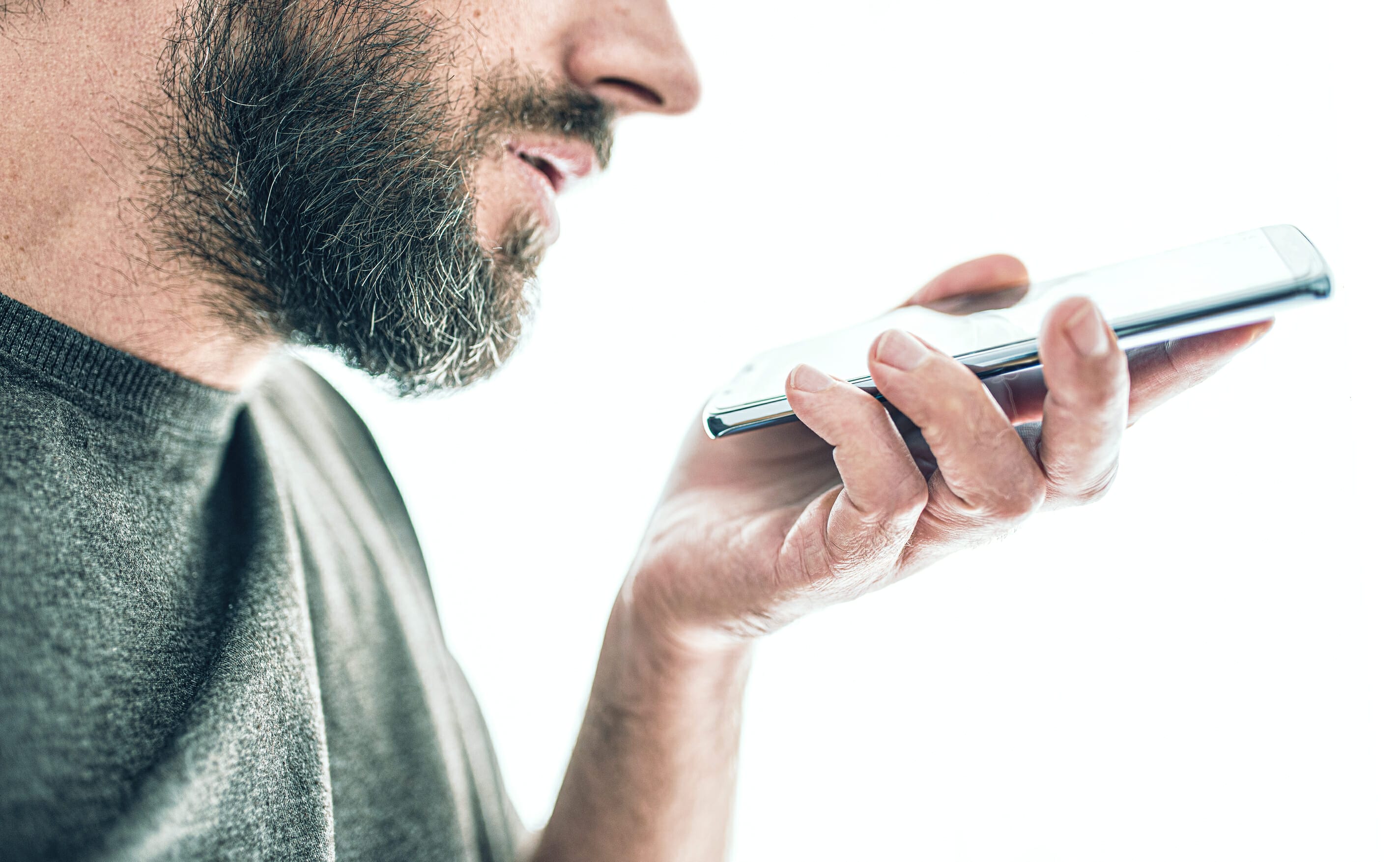
This last suggestion has helped me tremendously in improving my pronunciation, the fluidity of my sentences, and reading Korean. Try finding anything written in Korean, whether it’s a book, song lyrics, or a random website, anything will do.
Read the Korean out loud while recording yourself. Try to speak slowly, avoid mistakes, and pay attention to your accent and intonation. When you are done, play the recording and listen to yourself. Listen for any mispronunciation of words or intonation that doesn’t quite sound right.
Then read the same section you read again, trying to correct the mistakes you heard in the first recording. Keep going until you are content with your recording. Try to read something that only takes about a minute to record, as anything longer will make it harder to remember and fix mistakes in later recordings.
When you find a recording that you are content with. Go back and listen to your first recording, comparing it to your last one. You will be able to notice the differences.
Tips for Having Productive Korean-Speaking Practice Sessions
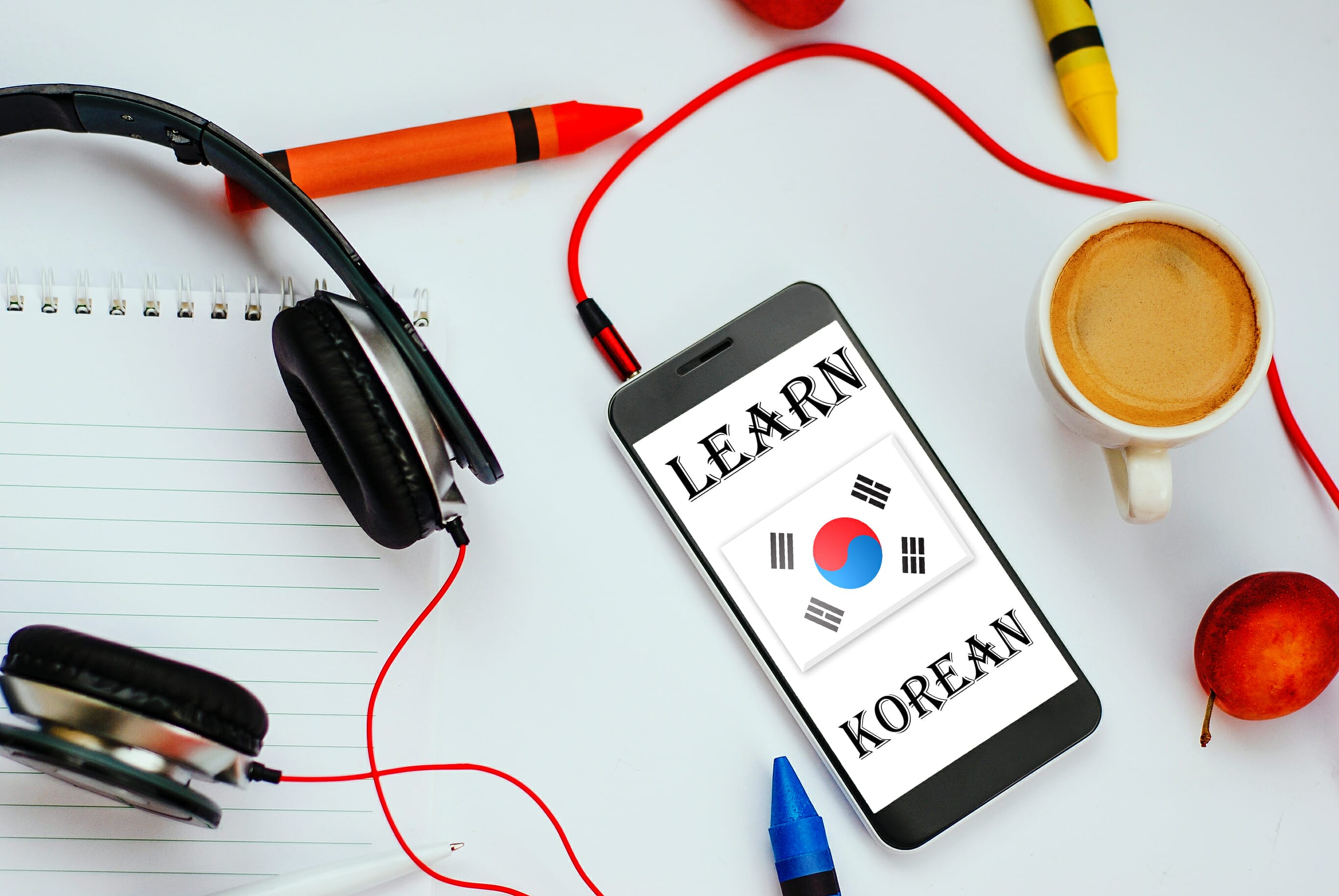
- Avoid using English as much as possible. If you don’t know a word, don’t say it in English, look it up. You can even use sign language instead! It’s important to struggle through the inability to express yourself in Korean rather than always reverting to English.
- If you have agreed to do a language exchange, agree on how much time you will spend in each language and set a timer. Otherwise, it’s easy to spend most of your time speaking English or even just socializing and forgetting about studying all together.
- Don’t be afraid to make mistakes. Don’t avoid a word or grammar form because you aren’t sure how to use it. Use it and then listen to feedback. There are several elements to speaking, two important ones being fluency and accuracy. Fluency is letting the words flow out, and accuracy is choosing the correct word or grammar structure. Many learners make the mistake of focusing too much on accuracy and then freeze up!
- Before starting a conversation in Korean, ask the person you are talking to if they will correct any mistakes you might make while speaking with what you are comfortable with. If you’re just starting out, you may want just to get what you’re saying out in the open. You may feel more comfortable getting corrections to improve your accuracy if you’re a bit more advanced.
- Thank those who correct your Korean. Don’t be embarrassed or angry that they corrected you. Instead, think of it as them saving you from future mistakes. It’s nothing personal!
- Don’t meet Koreans with the sole purpose of improving your Korean. Meet to become friends. Improving your Korean is only a perk of your friendship.
- Listen as much as you speak. Listening, especially to native Koreans, will let you know what areas you need to improve on and will get you familiarized with pronunciation and intonation.
- Don’t be afraid to ask questions or ask people to repeat what they said. It is hard to learn if you are confused or have no idea what is being said. Sometimes we can just smile and nod along without knowing what’s going on, but it all works better if you really understand it!
This concludes my recommendations on practising speaking Korean before going to Korea. Many more resources are available on the web, though I found these to be the most helpful. I encourage you to try them out and see which ones you find the most successful.
Remember to keep in mind my ten tips before starting a Korean-speaking session. This will help you to get the most out of your practice.
Also, remember that progress takes time and can be tasking. You will make thousands of mistakes while learning Korean and spend hundreds of hours studying. All the mistakes you make and the time you spend studying will bring you closer to becoming the fluent master of Korean you aim to be.
Don’t be discouraged when you don’t see substantial improvements from one study method. Give yourself the time to improve before deciding it doesn’t work for you. Time and devotion will show more results than anything else.
If you stick with it and devote your time and energy to it, I am confident these resources will help you become a better Korean speaker. Then when travelling to Korea, you will have confidence in your language abilities, and it won’t be misguided confidence. It will be confidence from hours of speaking practice.
